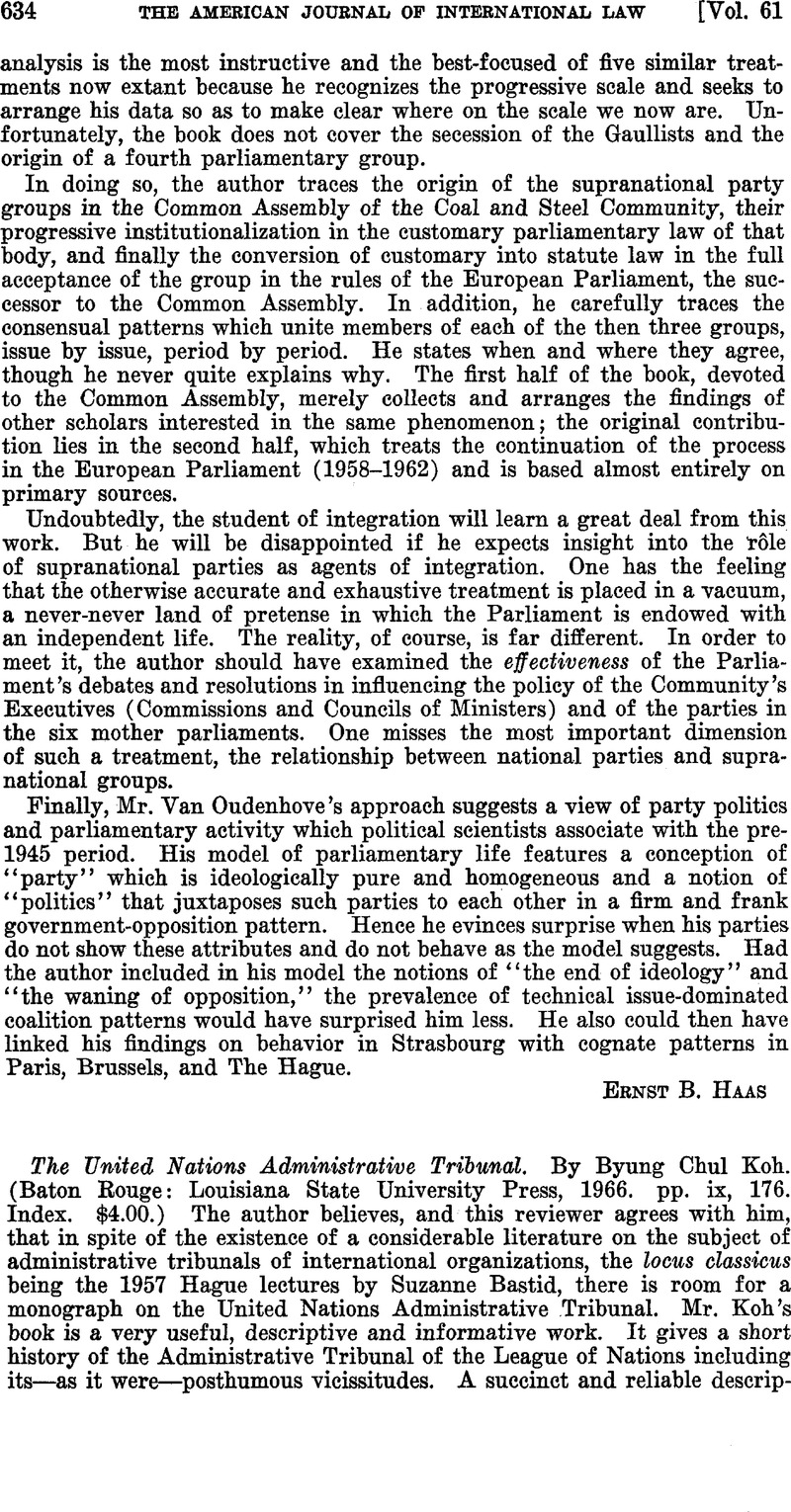No CrossRef data available.
Published online by Cambridge University Press: 28 March 2017

1 Effect of awards of compensation made by the United Nations Administrative Tribunal, Advisory Opinion of July 13, 1954, [1954] I.C.J. Eep. 47; 48 A.J.I.L. 655 (1954).
2 Maxwell Cohen, “The United Nations Secretariat—Some Constitutional and Administrative Developments,” 49 A.J.I.L. 312 (1955).
3 Khavkine v. The Secretary-General of the United Nations, Judgment No. 67, 1956. Judgments of the United Nations Administrative Tribunal, Nos. 1-70 (U.N. Publication Sales No: 58.X.1), p. 378.
4 Robinson v. The Secretary-General of the United Nations, Judgment No. 15, 1952, op. cit. note 3 above, p. 43.
5 Since General Assembly Res. 247 (III) (1948), Spanish has been a working language of the General Assembly, in addition to English and French, a provision which applies also under Art. 8 of the Rules of the Tribunal; Koh states on p. 71 that (only) English and Trench are the working languages. Since General Assembly Res. 1990 (XVIII) (1963), the General Committee of the General Assembly, which is the basis for the composition of the Committee on Applications for Review of Administrative Tribunal Judgments, has consisted of, inter alia, 17, not 13, Vice Presidents of the General Assembly, as stated on p. 89.